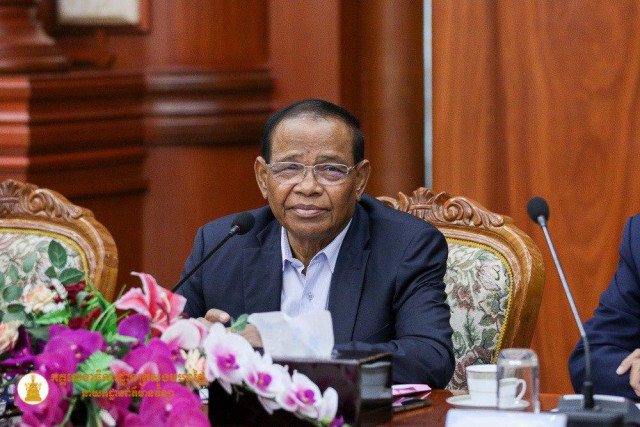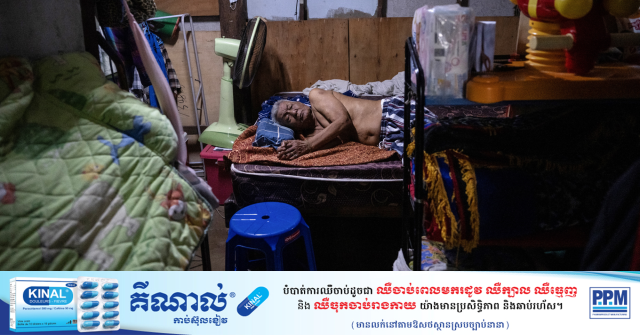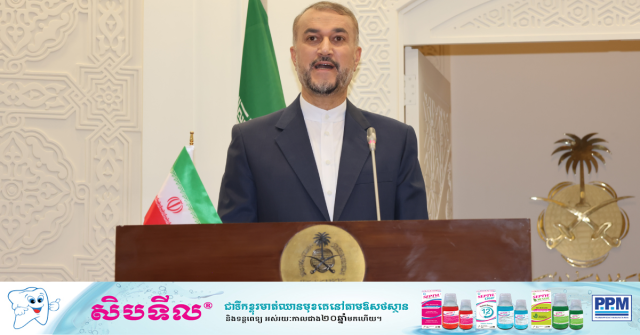Women’s Rights NGOs Ask to the Cambodian Government to Modify its Draft Law on Public Order

- Phoung Vantha
- August 28, 2020 10:57 AM
If adopted as it stands, the law will expose women to violations of their human rights, they say
PHNOM PENH--A group of NGOs working to protect and promote women’s rights and gender equality in Cambodia have appealed to the Cambodian government to discard several articles of the Draft Law on Public Order (DLPO), which in their opinion will violate women’s human rights.
"We therefore call on the Cambodian government to immediately discard the DLPO,” they said in their statement issued on Aug. 27. “The government should instead make it an urgent priority to address the forms of gender discrimination it has identified—including gender-based violence and discrimination in education, economic, social and political participation—through legislative reforms and policy change.”
Drafted by the Ministry of Interior, the Draft Law on Public Order has five chapters consisting of 48 articles with the first article stating that this law seeks to “maintain order, aesthetic value, sanitation, cleanliness of the environment, quietness, social stability, preservation of national tradition, and the dignity of citizens.”
In their statement, the NGOs said that they are especially concerned about nine articles of the DLPO, which restrict women’s right to freedom of expression, reinforce harmful gender stereotypes, and discriminates against at-risk groups in society, in particular women. The DPLO disproportionately criminalizes domestic, social and economic activities mainly conducted by Cambodian women, they said.
Article 36 of the draft law prohibits women from wearing clothes that are “too short” or “too revealing.” This provision violates women’s freedom of expression, undermines personal autonomy, and exacerbates discrimination against women who already face gender stereotypes and entrenched societal norms, the NGO said.
"Finally, article 36 fails to define subjective terms contained in the draft, thus opening the door to unequal enforcement and potential law enforcement corruption," the statement read.
Bunn Rachana, executive director of the women’s rights organization Klahaan, expressed grave concern over the move by the government to regulate dressing, which she called “a restriction” of women's freedom of choice. “It is not [appropriate] that the government should interfere or control people’s freedom of choice for dressing,” she said in interview.
Rather than incorporating the way people dress into the proposed legislation, the government should address sexual harassment in public, which is, Rachana said, “undeniably a public order issue that needs to be focused on.
“For the sake of public order, I totally support the government if it can incorporate the issue of sexual harassment in public into the law, offering the definition as well the punishment for such actions,” she said.
This message by NGOs working on women’s rights and gender equality in the country follows a joint statement issued on Aug. 13 by 65 civil societies in which they expressed concerns regarding this draft law that, they said, “has been written in an attempt to regulate public spaces and public behavior within those spaces. It covers aesthetics, sanitation, cleanliness, noise, and social values, all under the broad aim of maintaining ‘public order.’’’
On Aug. 27, Interior Ministry Secretary of State Ouk Kimlek met with representatives of Phnom Penh and all provinces to discuss the draft law.
Kimlek, who played a key role in drafting the law said that it is not meant to curb people’s freedom. Its goal is to ensure public order by maintaining social stability, the preservation of national traditions, and the dignity of citizens, he said in a message posted on the ministry’s Facebook page on Aug. 27.
“We created this law in order to maintain social order and also preserve national dignity,” he said. “Therefore, we ban people from dressing extremely inappropriately and ensure that they dress properly.”
Sao Phal Niseiy contributed to the story.















